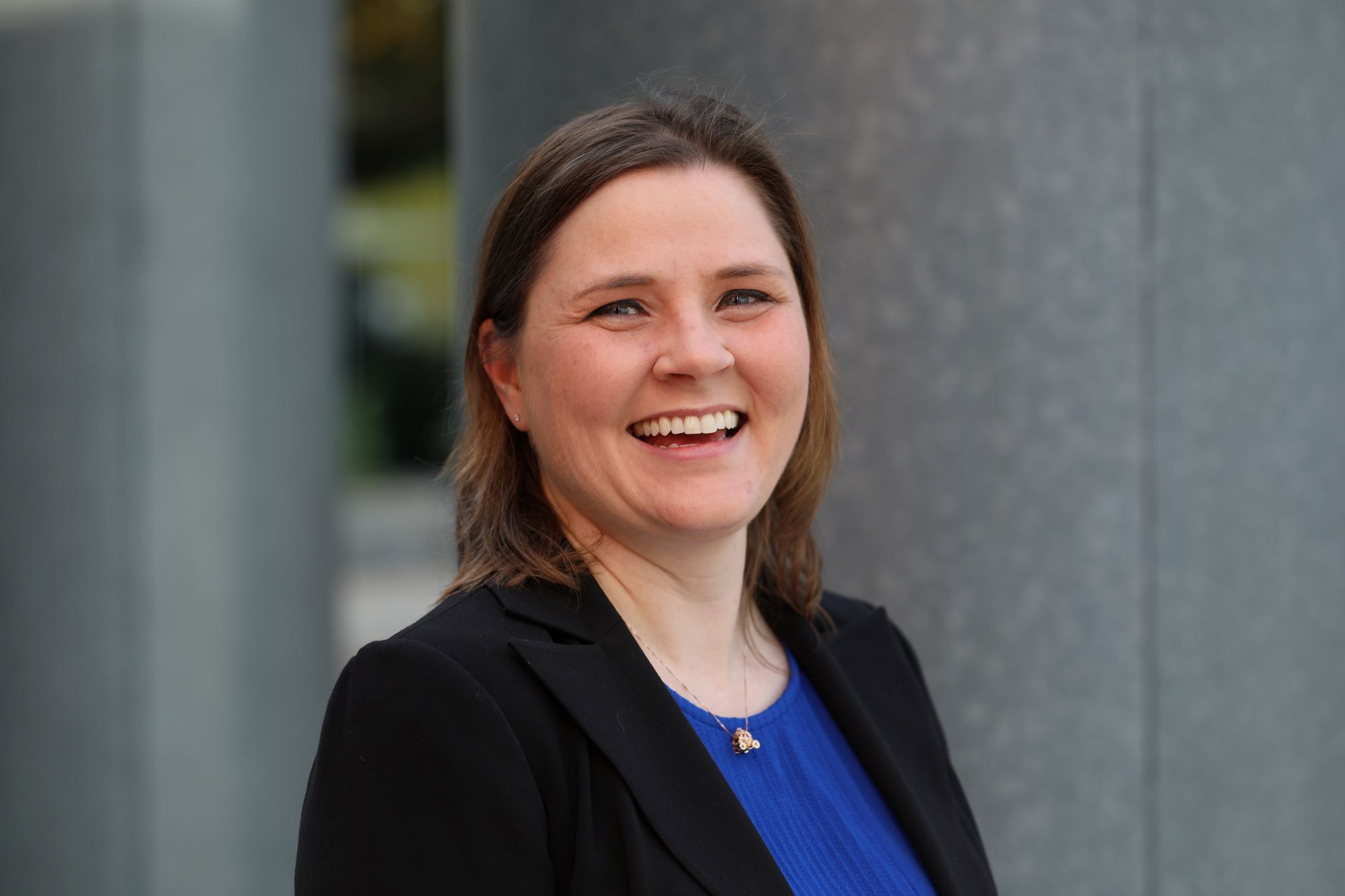
When her diabetic son’s elementary school told her it could not help him monitor his glucose or even give him juice when needed, Kari Cox ’26 knew she needed to be available for him during the day.
But after having worked nearly two decades alongside attorneys at the Irvine Company and an independent hotel group, Cox had determined to become a lawyer, too. The challenge for the South Orange County executive and mother of two: How to do both?
The solution for her was LMU Loyola Law School’s Hybrid JD Evening Program, which has consistently been ranked the top part-time program in the West by U.S. News & World Report. Because classes are held in the evening, she is available to help when her son needs assistance at school. And because of its hybrid structure, she only needs to commute one night a week (Mondays) to the law school’s Frank Gehry-designed campus in downtown L.A. She participates in classes online one additional evening each week.
“I was very blessed to get into Loyola Law School,” Cox said. “The hybrid program was very appealing to me because it meant that I would be able to minimize the amount of driving I would have to do but also be able to get a great education.”
Another aspect of the program she values is that many of the students are like her, people with established careers. “They’re there with purpose and goals in mind,” she said.
After earning her undergraduate degree in Orange County in 2005, Cox went to work for the Irvine Company managing its high-rise office buildings, where she collaborated with company attorneys on contracts, evictions and other matters. After several years there, she moved to the hotel company, eventually rising to be its director of finance, again working closely with in-house counsel.
As her career was blossoming, she discovered “the injustice of how people are not willing to take care of someone in society.” Later, she discovered the power of a law degree.
Her older son, now 9, was diagnosed with juvenile diabetes when he was just 1. After school officials denied her request to assist him with basic needs like orange juice, she approached them again with an attorney.
“My attorney looks at them and says, ‘What my client is trying to say is that he really needs juice in the event that he goes low,’ and then the school goes, ‘Oh, well, that’s OK. We can give him that,’” she said. “Just the presence of an attorney being there apparently seems to make a big difference.”
Cox hopes that after she graduates in two years, she can advocate for disabled children in schools. “I am blessed to be able to have an attorney able to represent us to make sure my son is as safe as possible.”
Many other parents of disabled kids don’t have attorneys, she said. “There’s a void. I want to be able to help them because there are too many people whose kids have been put in dangerous situations” at school.
To help her achieve that goal, Loyola Law School is home to The Coelho Center for Disability Law, Policy and Innovation, which offers fellowships and other programs to advance the lives of people with disabilities.
Cox said she also loves real estate transactions. “If I can figure out a way to do both of those, that would be my dream scenario,” she said. “Right now, I’m just going for the law degree with the intention to advocate for people … whose kids deserve an education.”
In the meantime, thanks to Loyola’s Hybrid JD Evening Program, she can be in school with her son when he needs her.